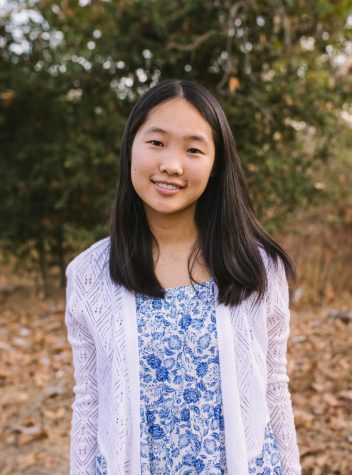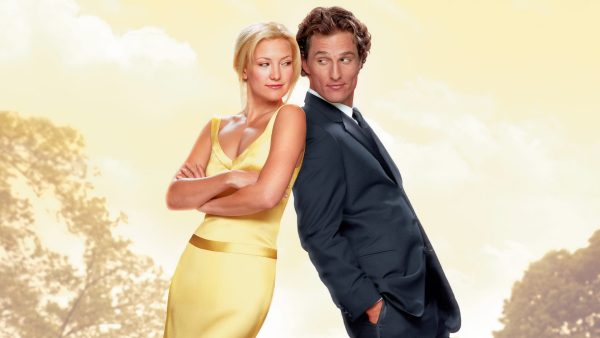Three Lessons I Learned From “A Separate Peace”
Last month, I picked up an unassuming blue paperback titled “A Separate Peace.” Expecting another anti-war novel with issues I couldn’t fully comprehend, I was surprised to find myself drawn to the writing and enjoying the story. By chapter two, I was hooked.
Through the eyes of 16-year-old Gene Forrester, I traveled into the summer term at the Devon School, an all-boys private school just beginning to feel the cold breath of World War II. The first few chapters of the book follow the adventures of Gene, a studious introvert, and his friend, Phineas, an athletic daredevil who has a penchant for breaking the rules. Phineas (Finny) and Gene create The Super Suicide Society of the Summer Session, where members participate in the daily ritual of jumping off a high tree branch into the Devon River. It’s an idyllic summer until Gene begins to resent Finny’s success. One night as they are preparing for a double jump into the river, Gene shakes the tree branch, causing Finny to fall and shatter his leg. His injury puts an irrevocable end to his athletic career.
At this point, I tested positive for readers’ hubris. Finny helps Gene to reconcile his guilt, and Finny’s injury prevents him from being drafted and saves his life. (Cough.) Gene finds a separate peace within himself, and Finny finds a physical peace away from the war. (Sniffle.) They’re both heroes. Peace is established. The end. (Sneeze!)
Naturally, I was wrong. Gene confesses to Finny, but Finny refuses to believe him. Conflicted, Gene returns to a much darker winter term at Devon, now overshadowed by the war. The first student to enlist, the peaceful, non-conforming Leper Lepellier, deserts months later, scarred by what he’s seen and haunted by hallucinations. He reveals to Gene that he knows why Finny fell out of the tree.
Meanwhile, Brinker Hadley, one of the student leaders at Devon, grows suspicious of Gene and his connection with Finny’s injury. Late one night, he organizes a student tribunal which puts Gene on trial. Finny denies any clear recollection of the facts, but Leper’s testimony casts the guilt on Gene. Distraught, Finny leaves the room and slips on the stairs, breaking his leg a second time.
Gene apologizes to Finny, and the two eventually agree that Gene’s action was based on blind impulse, not personal hatred. Gene returns later in the afternoon, only to learn Finny has died from a freak surgical accident. With Finny’s death, Gene loses a part of himself, and with it, his hatred for the enemy in the war. In his words, “My war ended before I ever put on a uniform; I was on active duty all my time at school; I killed my enemy there.” Gene fought his war with bitterness and resentment at Devon. And having conquered his inner enemies, he finds a separate, inner peace.
I recently had a conversation with a friend on what made a work “great literature.” The answer, I at least concluded, is this. Echoing what teachers have told me for years but which hasn’t stuck till now, one thing that makes a great book “great” is that it can be set in a time and place distinct from our own, and yet teach us who we are and how we should live today. Great literature is not separate from –– and yet transcends –– time.
“A Separate Peace” does just that. Like Gene learns how to find peace in a war-shadowed world, so can we find peace amid pandemic, political rivalries, and whatever else makes war on our outside world. “A Separate Peace” gives us three lessons to do so.
- Accept Reality Without Letting It Destroy Your Happiness
At the end of the book, Gene describes the various ways in which the people he knew tried to fight the war. One struck out at it and at everything else he knew. Another grew resentful. Yet another hid away from the horror until he met it face to face. Each developed “an obsessive labor of defense” to shield themselves from fear. Instead, Gene decides to accept the reality of war, without letting it destroy his ability to experience happiness.
- Fight Your Inner Battles First, and the Outward Battles Second
Gene reflects that wars are made not by “generations and their special stupidities” but by “something ignorant in the human heart.” The resentment that characterizes Gene’s inner battle is akin to the bitterness and hatred that causes war. But whereas Gene can’t “fix” the war, he can and does confront his inward problems. Having done so, he can face the outward battle.
- Cherish What You Have
Finny appreciates the little moments, searching for and finding good in the world. Even when he has to make his way on crutches over the ice, he tells Gene that he likes winter, and to Gene’s cynical reply, responds that “When you really love something, then it loves you back, in whatever way it has to love.” Gene contemplates that the statement is “much more false than true” but acknowledges that “it should have been true.” We can take something from Finny’s idealistic outlook on life: the grain of truth in it that helps us rightly recognize goodness.
While we may not establish peace in our outside worlds, we can and should strive for peace on the home turfs within us. And perhaps, having built peace within ourselves, peace will trickle from our inner worlds into the outer.

Grade: 12
Years on Staff: 4
Why are you writing for the Flintridge Press?
To address issues relevant to our time, to express ideas through writing,...











